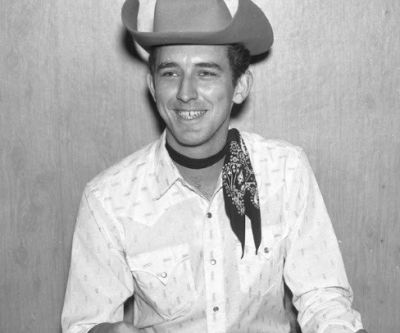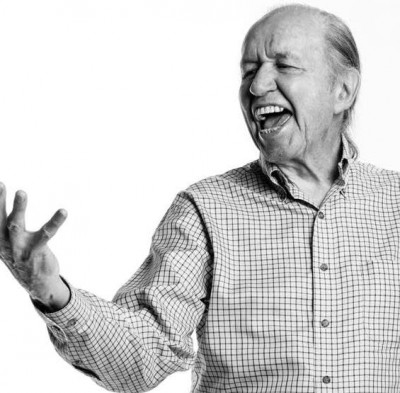December 20, 2018
Tuesday
8:00 p.m.
Minneapolis, MN
Test schedule
A live performance with Robin and Linda Williams at the Cedar Cultural Center
May 20, 2018
Sunday
3:00 p.m.
Lexington, MA
Lexington, MA
A live performance at the Saenger Theatre
April 10, 2018
Tuesday
8:00 p.m.
Tulsa, OK
Tulsa, OK
A live performance at the Brady Theater
March 17, 2018
Saturday
8:00 p.m.
Long Beach, CA
Long Beach, CA
A live performance at the Carpenter Performing Arts Center
March 15, 2018
Thursday
7:00 p.m.
Mobile, AL
Mobile, AL
A live performance at the Saenger Theatre
Excerpt from Paradise Lost by John Milton (buy now)
(Eve speaks to Adam)
With thee conversing I forget all time,
All seasons and their change, all please alike.
Sweet is the breath of morn, her rising sweet,
With charm of earliest birds; pleasant the sun
When first on this delightful land he spreads
His orient beams, on herb, tree, fruit, and flower,
Glistering with dew; fragrant the fertile earth
After soft showers; and sweet the coming on
Of grateful evening mild, then silent night
With this her solemn bird and this fair moon,
And these the gems of heav’n, her starry train:
But neither breath of morn when she ascends
With charm of earliest birds, nor rising sun
On this delightful land, nor herb, fruit, flower,
Glistring with dew, nor fragrance after showers,
Nor grateful evening mild, nor silent night
With this her solemn bird, nor walk by moon,
Or glittering starlight without thee is sweet.
It’s the day we celebrate the birth of Dante (books by this author), born in Florence, Italy, in 1265. No one knows for sure the exact date. What is known about the poet is that he met his great love and muse, Beatrice, when he was about nine years old; it was love at first sight. Three years later, he was promised in marriage to another girl, but that didn’t stop him from writing about Beatrice in his poetry, where he referred to her as his main reason for living.
Dante had political aspirations, and because the law held that public officials had to be a member of one of the professional guilds, he became a pharmacist. He had wanted the Vatican to have less influence over Florence — but opposing forces came to power, and he was exiled to Rome. With his fortunes left behind and his great love Beatrice now dead, Dante had nothing but time to devote to his poetry; it was then, toward the end of his life, that he began work on his Divine Comedy.
Dante chose to write the poem in colloquial Italian rather that Latin, which had been the language for Western literature for more than a thousand years. It was also the first epic poem in Western literary history in which the author served as the main character.
He was 55 when he died of malaria, shortly after completing Paradiso, the third and final part of Divine Comedy, following the Inferno and Purgatorio. In the years after his death, as the influence of his work helped establish Italian as the world’s accepted language of great literature, his hometown of Florence came to regret having banished Dante, and requested that his remains be transferred back for burial, but it wasn’t until 2008 that the city officially rescinded his sentence of perpetual exile.
On this day in 1974, Henry Jay Heimlich published his “Heimlich Maneuver” in the Journal of Emergency Medicine. The article was called “Pop Goes the Café Coronary.” Less than three weeks later, the maneuver was used successfully in a restaurant in Bellevue, Washington. As of 2006, the American Red Cross recommends the “five and five” approach: five sharp blows to the back, followed by five abdominal thrusts if the back blows are not effective.
Heimlich’s son Peter has dedicated a website to exposing what he calls his father’s “50-year history of fraud.” He writes: “At age 48, I came to realize that my father was a danger to others and to himself. Since then I’ve done what I could to bring the facts to public attention in order to expose the ‘poison ideas’ circulated by my father and his cronies, a motley crew of hacks, quacks, and narco doctors.” Among other things, he accuses his father of stealing the “Heimlich maneuver” from a colleague, faking his medical credentials, and deliberately infecting people with malaria to cure them of AIDS, cancer, and Lyme disease.
It’s the birthday of actress Marilyn Monroe, born Norma Jean Mortenson in Los Angeles, California (1926). As a chil, she was passed around between her mother and a series of foster parents. Eventually, she wound up with her mother’s friend Grace McKee, who worked in the movie industry. Grace worshiped movie stars, and she told Monroe that she would be a movie star herself one day. She taught Monroe to act like the women she saw in movies; she took Monroe to beauty parlors, she dressed her up in fancy clothes, and had her practice smiles and pouts in the mirror.
After Grace McKee got married, Monroe had to live for a while in an orphanage, and at night she would stare out the window at the water tower of RKO Studios. She spent the next several years moving from house to house, living with various distant relatives and friends of the family. She told children at school that her parents had died in a car accident.
After she went through puberty, her clothes were much tighter, but the family she was living with couldn’t afford to buy her new ones. Walking to school, men started honking their horns at her and waving, and she’d wave back. She said, “The whole world became friendly.” To avoid returning to an orphanage or another set of foster parents, she was married at 16 to a man named James Dougherty.
During World War II, Monroe got a job at an aircraft factory called Radioplane, where she sprayed glue on fabrics and inspected and folded parachutes. She was working at the factory when a group of photographers showed up to take pictures of women working for the war effort. The photographers noticed her right away, and they persuaded her to become a model. She bleached her hair and began to appear on the covers of magazines.
She got her big break in the musical Gentlemen Prefer Blondes (1953). Everyone had been trying to sell her as a “love goddess,” but it turned out that she had a gift for comedy.
She died just nine years after that first big success, but her life has been an inspiration to many writers. She has been the subject of more than 300 biographies, including a partially fictionalized biography by Norman Mailer. The poet Sharon Olds wrote a poem about her death. In the novel Motor City (1992), author Bill Morris wrote a fictional version of her wedding day with Joe DiMaggio. Joyce Carol Oates wrote the novel Blonde(2001) about her, and it was nominated for the National Book Award.
Marilyn Monroe said, “I don’t want to make money, I just want to be wonderful.”






